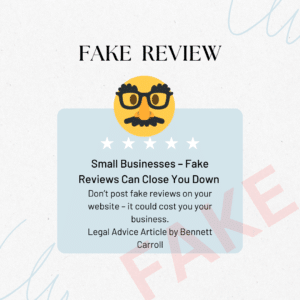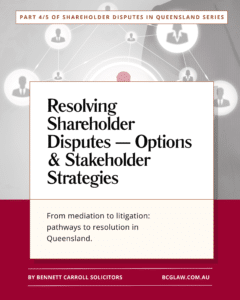The process of buying or selling a commercial business in Queensland can be streamlined with a Walk-In Walk-Out contract. This type of contract, often abbreviated as WIWO, involves the transfer of all assets and operations of a business, allowing the new owner to seamlessly take over the business on a walk-in, walk-out basis.
The process of buying or selling a commercial business involves numerous legal considerations and negotiations to ensure a smooth and fair transaction. Among the various types of commercial business sale contracts, the “Walk-In Walk-Out” contract is gaining popularity due to its simplicity and convenience. In this article, we will delve into what Walk-In Walk-Out contracts entail, their advantages and disadvantages, and important factors to consider when entering into such agreements.
Understanding Walk-In Walk-Out Contracts
A Walk-In Walk-Out contract, often abbreviated as WIWO, is a type of commercial business sale contract that encompasses the transfer of both tangible and intangible assets of the business. Unlike other types of sale contracts, where specific items may be excluded or included, a WIWO contract involves selling the entire business as it stands on the day of settlement. This means that the new owner “walks in” and takes over the business operations exactly as they are, with employees, inventory, equipment, and all other elements included.
Key Components of a Walk-In Walk-Out Contract
- Assets Included: A WIWO contract typically lists all the assets that will be transferred to the new owner. This may include the business premises, equipment, inventory, intellectual property, customer databases, employee contracts, and licenses or permits.
- Excluded Liabilities: While the contract includes the assets, it should also specify any liabilities that will not be assumed by the new owner. These may include outstanding debts, warranties, or legal claims that remain the responsibility of the seller.
- Purchase Price and Payment Terms: The agreed-upon purchase price for the business and the terms of payment, such as a lump sum payment or instalment plan, should be clearly outlined in the contract.
- Conditions Precedent: Walk-In Walk-Out contracts may include conditions that must be met before the sale is finalized, such as obtaining necessary approvals or fulfilling specific requirements.
Advantages of Walk-In Walk-Out Contracts
- Simplicity: WIWO contracts simplify the sales process by including all assets and operational elements, reducing the need for complex negotiations on individual items.
- Quick Transition: With the business being sold as it is, the transition to new ownership can be faster and more efficient, minimizing disruptions to day-to-day operations.
- Clarity for Buyers: WIWO contracts provide transparency to buyers, as they can assess the business’s current state and make informed decisions based on existing operations and performance.
- Opportunities for Sellers: For sellers, WIWO contracts offer the chance to sell the business as a whole, potentially attracting more buyers and achieving a quicker sale.
Disadvantages and Considerations
- Limited Customisation: As WIWO contracts involve selling the business “as is,” there might be limited room for customising the deal to suit the preferences of both parties.
- Price Negotiations: While WIWO contracts simplify the process, price negotiations can still be complex, especially if the value of assets and goodwill is disputed.
- Due Diligence: Buyers must conduct thorough due diligence to ensure they are fully aware of the business’s financial health, potential risks, and future prospects.
- Legal Expertise: As with any business sale, both parties should seek legal advice to ensure the contract protects their interests and complies with relevant laws and regulations.
Are you worried about hidden liabilities in a WIWO contract? Do you need legal clarity before signing? Contact our expert commercial lawyers.
Conclusion
Walk-In Walk-Out contracts have become a popular option for commercial business sales due to their simplicity and efficiency. These contracts allow buyers to step into a fully operational business and enable sellers to complete transactions more quickly. However, as with any significant business deal, both parties should approach WIWO contracts with careful consideration, conduct proper due diligence, and seek professional advice to ensure a successful and secure transaction. When executed thoughtfully, Walk-In Walk-Out contracts can be a beneficial and effective means of transferring business ownership and fostering a positive transition for all parties involved.
While you are here:
- Learn more about our commercial law department.
- Demystifying Business Contracts: Essential Dos And Don’ts For Queensland Entrepreneurs
- Contract Negotiation – Tactics & Strategy – Legal Advice Article
- Navigating Business Contracts: How A Contract Lawyer Can Safeguard Your Interests
Call us on or email and safeguard your interests every step of the way- We are your legal problem solvers.
Call Us Today:
Need help with a Walk-In Walk-Out (WIWO) contract? Contact us at 1300 334 566 or email info@bcglaw.com.au for expert advice and support.
Get Personalised Legal Advice on WIWO Contracts – Enquire Now
See external links:








